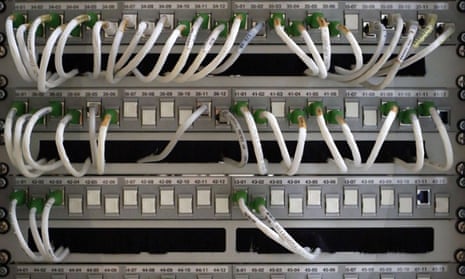The idea of living in a world where government agencies could almost instantaneously track down journalists’ sources, no matter what the public interest considerations are, seems like a chilling prospect.
But it's also largely the state of affairs that journalists now find themselves subject to in Australia.
The Telecommunications Interception and Access Act 1979 is so broad and poses such low limitations on state and federal government agencies that it is a remarkably easy feat for governments to track down a journalist's sources, and to take swift and decisive action against them.
Here’s how it would work; in the event of a serious leak of government information, an agency that was so inclined - for instance the treasury, the attorney general’s department or the immigration department - could apply to a senior officer within their own department to access the journalist’s telecommunications data.
This can reveal who they called or emailed, what time they contacted them and the location of the contacts. The phrase used to describe this type of information is "metadata", although it's a term fraught with uncertainty. If there hasn’t been a level of obfuscation or encryption used by the journalist and the source, it's a relatively simple task to track down the source using this information.
Remarkably, accessing this type of data is easy. It doesn’t require a warrant from a judge, and is merely approved by a senior officer from the applicants own agency, and then sent straight along to the mobile phone or internet provider. And it’s not just police or intelligences agencies that can request this type of data; almost any agency, including local councils and even the RSPCA, are able to access metadata without a warrant.
It’s a dangerous state of affairs. The act is currently the subject of an inquiry chaired by Greens senator Scott Ludlam, who has been conducting hearings this week. But the evidence delivered so far should raise serious concerns for all journalists, activists and whistleblowers.
A prevailing theme from the agencies involved this week - including state police forces, customs, the federal police, the attorney general's department and a range of others - is they want greater powers to share their data and greater powers to ensure telecommunications providers keep this data in a mandatory scheme. Most have emphatically rejected proposals that they be forced to apply for warrants to access metadata.
The argument was made by the attorney general’s department, federal police and the Australian crime commission that metadata is “non content” data, and is therefore not invasive and should not require a warrant for access. But at the same time these agencies have all decreed how important and vital it is to investigations because – by their own admissions – it is crucial to creating a web of associations.
But association is all that is needed to blow the cover on a source. And the evidence that has already emerged from the inquiry should be cause for serious concern. In a joint appearance on Tuesday the Australian crime commission, South Australian police, customs and the Australian Securities and Investments Commission all confirmed they did not have uniform application forms or processes to apply for this type of data.
There is also no requirement under the act for them to destroy data once it has been accessed, meaning that these associations can be revealed long after they were initially accessed, and for unforeseeable purposes.
All the while, the agencies involved continue to argue that they are doing the right thing. But how would we know? The commonwealth ombudsman and privacy commissioner have limited oversight roles, and in their submissions to the inquiry, both called for greater scrutiny of these sorts of applications. And when I tried to determine whether there are stored telecommunications warrants (which do require a warrant from a judge) had been lodged that revealed my own details, the Australian Federal Police took the highly unusual step of refusing to confirm or deny the existence of any documents relating to my freedom of information request.
Many journalists are unaware of the threat this act represents. But we are now at a point where news organisations that proclaim to have “confidential” tip off email addresses are placing their sources at a real risk of exposure by government agencies, by virtue is this act. In order to help safeguard our sources, the act must change.





